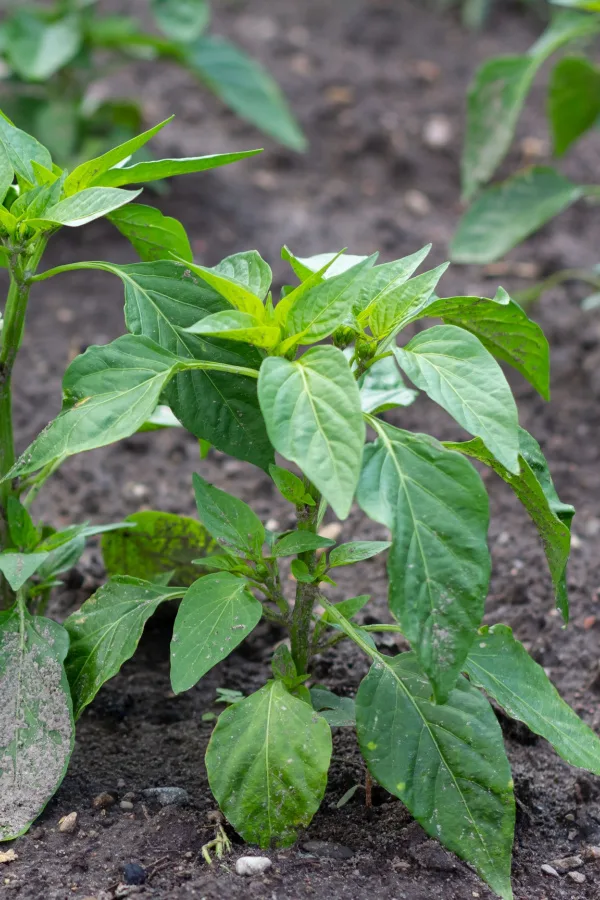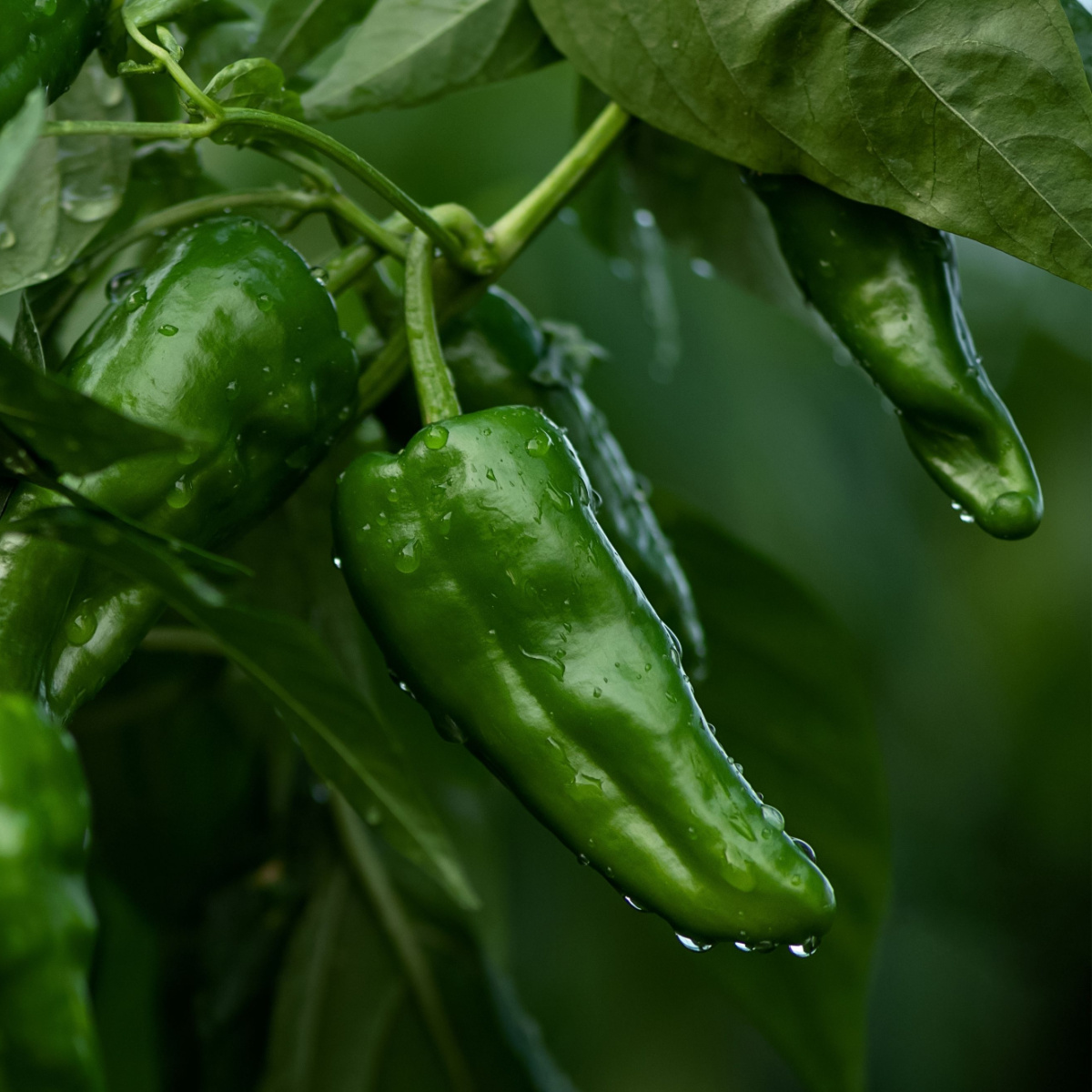The Ultimate Overview to Fertilizing Peppers: Enhancing Growth and Flavor Naturally
As pepper enthusiasts seek to grow robust plants producing flavorful fruits, the duty of fertilizing comes to be vital in attaining these objectives. By exploring the benefits of natural fertilizers, opening the keys behind pepper plant nutrient requires, and diving into the realm of organic plant food choices, a world of opportunities emerges for enhancing the vigor and taste account of these beloved plants.
Benefits of All-natural Plant Foods
Natural fertilizers use a range of benefits that add to the overall health and productivity of pepper plants. By enriching the soil with natural issue, such as compost or manure, natural plant foods boost its water retention ability and nutrient-holding capabilities, producing an extra congenial environment for pepper plants to grow in.
Moreover, all-natural fertilizers support a energetic and diverse soil microbiome, cultivating helpful microbial activity that aids in nutrient recycling and uptake by the plants. This microbial activity can aid subdue unsafe virus and illness, reducing the need for chemical treatments. Furthermore, natural fertilizers promote lasting dirt wellness by preserving a balanced ecological community underground, which in turn supports the overall health and wellness and strength of pepper plants over ground.
Comprehending Pepper Plant Nutrient Needs
Having established the benefits of natural plant foods in enhancing dirt health and promoting microbial activity, the emphasis currently moves to comprehending the details nutrient needs vital for optimal development and flavor in pepper plants.

Understanding the specific nutrient needs of pepper plants is vital for attaining plentiful harvests with exceptional flavor. By giving the right balance of nutrients with natural plant foods or soil amendments, farmers can guarantee healthy, strenuous plants that produce savory peppers throughout the expanding period.
Organic Fertilizer Options for Peppers
In boosting the growth and taste of pepper plants, selecting the appropriate natural plant foods is a critical consideration. Organic plant foods offer a sustainable and all-natural way to nourish pepper plants without presenting dangerous chemicals to the soil and atmosphere. One preferred choice is garden compost, which enhances the dirt with necessary nutrients and enhances its framework, promoting healthy and balanced origin growth and general plant growth. In addition, compost aids keep dampness in the dirt, lowering water stress on pepper plants during heat.
Another effective natural plant food for peppers is aged manure. Rich in potassium, phosphorus, and nitrogen, aged manure supplies a well balanced nutrient mix that sustains energetic development and bountiful fruit manufacturing (best fertilizers for peppers). It is essential to use well-aged manure to avoid shedding the plants with excess ammonia
Fish solution is a fast-acting organic plant food that provides pepper plants with a fast increase of nutrients. Obtained from fish waste, this plant food is high in nitrogen, making it particularly useful throughout the onset of pepper plant growth. Fish solution is simple to use and is easily soaked up by the plants, advertising healthy foliage and strong origin growth.
When choosing an organic fertilizer for peppers, take into consideration the details nutrient demands of your plants and choose choices that straighten with your gardening techniques and values.
Best Practices for Feeding Pepper Plants
Taking into consideration the click this link relevance of choosing appropriate natural fertilizers for pepper plants, implementing ideal techniques for fertilizing is vital to guarantee optimal growth and taste advancement. Among the crucial best practices for fertilizing pepper plants is to conduct a soil examination before using any type of fertilizers. This examination will certainly help establish the particular nutrient demands of the soil and overview you in selecting the ideal type and amount of plant food. It is also vital to feed pepper plants at the correct time, usually prior to planting and throughout crucial growth phases such as blooming and fruit advancement.
Additionally, incorporating organic issue right into the dirt via compost or mulching can help improve soil framework, water retention, and vitamins and mineral schedule, advertising much find here healthier pepper plants with boosted taste profiles. By adhering to these finest methods, you can properly nourish your pepper plants and achieve bountiful harvests with remarkable preference and quality.
Troubleshooting Common Fertilization Issues

pH inequality is another concern that can impact nutrient uptake in pepper plants. Developing a routine fertilization timetable and adhering to suggested application prices can aid prevent this issue and make certain healthy pepper plants throughout the growing season.
Final Thought
By recognizing the nutrient needs of great post to read pepper plants and selecting natural plant food alternatives, garden enthusiasts can properly promote vigorous and healthy growth. Following best methods for feeding pepper plants and repairing common fertilizing problems can help ensure successful farming of peppers.
By discovering the benefits of natural plant foods, opening the keys behind pepper plant nutrient needs, and diving into the realm of organic fertilizer choices, a globe of possibilities arises for improving the vigor and taste account of these precious plants.Fish solution is a fast-acting natural plant food that provides pepper plants with a quick increase of nutrients. It is likewise essential to fertilize pepper plants at the appropriate time, normally prior to planting and throughout vital development phases such as blooming and fruit advancement.
By understanding the nutrient requirements of pepper plants and choosing natural plant food choices, garden enthusiasts can efficiently promote strenuous and healthy and balanced growth. Adhering to best practices for fertilizing pepper plants and repairing common fertilization concerns can assist guarantee successful growing of peppers.